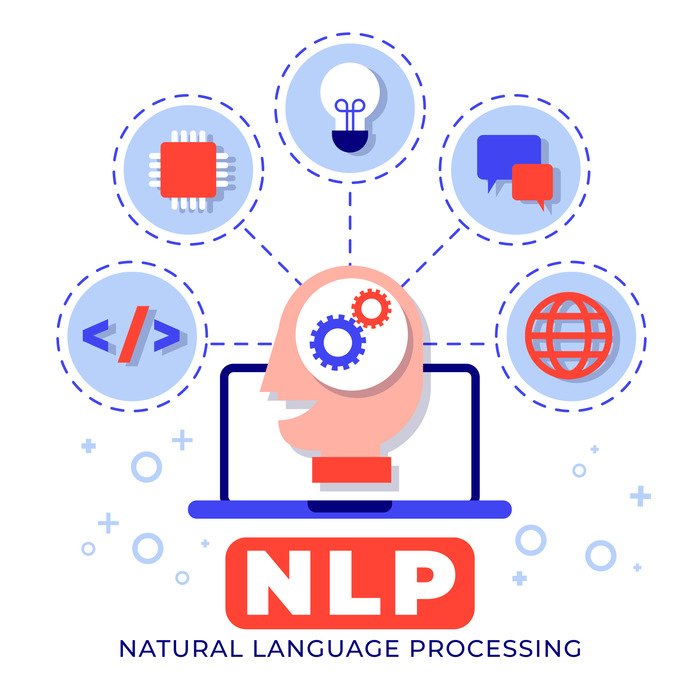As a growth-oriented business leader, you are well aware that providing an amazing customer experience (CX) is one of the key goals for any company, regardless of industry.
Whether placing an order, requesting a product exchange, or inquiring about a billing concern, today’s customers expect quick and clear answers to their queries. According to HubSpot Research, 90% of customers think getting an “immediate” response is crucial when they have a customer service question.
Furthermore, understanding your customer preferences, opinions, and sentiments from many customer touchpoints- website, email, social media, and mobile apps- is crucial for your business success. About 80% of consumers have stated that they are more likely to make a purchase when businesses offer a personalized experience.
Hence, gathering and analyzing customer feedback is essential to make data-driven decisions and enhance your overall customer experience.
Otherwise, you’re missing an excellent way to understand your customer at a deeper level.
But how will you analyze customer data and extract actionable data intelligence?
Enter Natural Language Processing (NLP) – an innovative AI system that can extract valuable insights from the Voice of the Customer (VoC) data.
It can analyze communications in emails, LinkedIn, and other sources between customer-facing professionals and their contacts to keep their relationships on track and help them provide a better customer experience.
Want to know more about the potential of Natural Language Processing and how it can transform your customer service? Let’s dive in!
Related blog: Conversational AI Service Desk: The Future of ITSM
Understanding Natural Language Processing (NLP)
Natural language processing is a branch of computer science and artificial intelligence dedicated to facilitating seamless communication between computers and humans using natural language. Its ultimate aim is to enable computers to comprehend language just like humans do. This transformative technology serves as the backbone for a wide array of applications, including virtual assistants, speech recognition systems, sentiment analysis tools, automatic text summarization software, machine translation solutions, and much more.

Did you know that 95% of customer data exists in unstructured text forms, such as emails, survey comments, Twitter posts, online reviews, and forum comments? Reading through this massive amount of text manually is nearly impossible. Assuming an average person can process 50 pieces of unstructured data per hour, it would take almost seven years for one person to review one million items. So, how do you understand and gain insights from this extensive feedback?
The answer lies in natural language processing, which automates text reading using advanced speech recognition and language algorithms. Natural Language Processing engines are swift, consistent, and programmable, capable of identifying words and grammar to extract meaning from vast amounts of text
How Natural Language Processing Can Transform Your Customer Service?
Natural Language Processing has the potential to transform your customer service in several ways, enhancing both customer experiences and operational efficiency. Here’s how Natural Language Processing can make a significant impact:
Recommending Right Solutions
Customer service representatives often invest considerable time in researching answers to customer queries. This can be particularly challenging when sifting through a vast pool of potential solutions. What service representatives truly need is one to two precise answers that can address the customer’s question. Some organizations maintain exhaustive repositories of issues and their corresponding resolutions, requiring service representatives to navigate through this database, often manually. This process can be painstakingly slow and draining, especially when repeated for each customer inquiry.

Natural Language Processing offers an ultimate solution by recommending optimal answers based on the specific support question. What sets this approach apart is the ability to generate a “score,” indicating the likelihood of an answer resolving the customer’s problem. With this solution in place, service representatives no longer need to initiate explicit searches. Instead, relevant information is automatically delivered to them, seamlessly integrated into their workflow. This streamlined process not only saves time but also accelerates response times, enabling service representatives to tackle a larger volume of support issues.
Facilitating Complex Issue Resolution
As we all know, some customer support questions find straightforward answers; others present as complex puzzles requiring in-depth exploration. For customer service representatives (CSRs) to effectively tackle such complexities, delving into past interactions and understanding how similar issues were successfully resolved can be invaluable.
Machine Learning and Natural Language Processing have the potential to automate this process seamlessly. By recommending pertinent historical threads for any given support request, these technologies eliminate the need for extensive manual searches or repeated outreach to colleagues and managers for assistance.
Automated Question Routing
Support inquiries often encompass a range of topics, including billing, login issues, and security concerns. The traditional approach of routing these tickets through a service desk for manual reassignment is characterized by its slow, inefficient, and error-prone nature, yet it remains prevalent in many organizations. Unfortunately, delays in assigning queries to the appropriate personnel inevitably result in delays in issue resolution.
However, machine learning and natural language processing techniques offer a solution. These technologies enable the automatic routing of support questions to the most suitable service representatives. This process involves classifying each incoming question into predefined categories, such as “accounts and profiles,” “security,” or “billing.” These categories serve as the foundation for routing questions to representatives or teams with expertise in handling the respective topics.
By directing questions efficiently to individuals possessing the relevant knowledge, you can ensure prompt and timely responses, ultimately enhancing the operational efficiency of your support functions.
Automated Service Ticket Prioritization
Imagine you have a big pile of customer questions or problems to deal with, like emails or messages. Natural Language Processing is like a smart assistant that reads these messages and figures out which ones are really important and need quick attention.
It does this by looking at the words and phrases used in the messages. If someone says “urgent” or “serious problem,” Natural Language Processing knows it’s a big deal. It also checks information about the customer, like how long they’ve been with your company or how much they spend, to see if they should get special attention.
Natural Language Processing doesn’t just work on one message at a time; it can handle lots of them together. So, it helps make sure the most important issues get fixed fast, making customers happy, and the less urgent ones still get taken care of, just not as quickly. This makes customer support smoother and more efficient.
Related blog: Understanding the different features of Ticket Management Software
Benefits of Natural Language Processing in Customer Service
Integrating Natural Language Processing into customer service offers numerous benefits to businesses. It enhances operational efficiency and cost reduction while elevating customer satisfaction. Whether it’s streamlining direct calls or offering robust alternatives to human staff, Natural Language Processing unlocks a multitude of possibilities for optimizing customer service across both its front-end and back-end functions. Here are some key benefits:
Improved Customer Satisfaction

NLP-driven chatbots and virtual assistants excel at providing quick and accurate responses, leading to a notable boost in customer satisfaction. Customers appreciate receiving help promptly and effectively, which positively influences their perception of the company’s commitment to service excellence.
24/7 Availability According to Zendesk, 66% of consumers say they expect to seek a response from someone immediately when contacting a company, regardless of the time. With NLP-powered chatbots, you can ensure that customers can access assistance at any hour. This round-the-clock availability enhances customer convenience, particularly for those in different time zones or with busy schedules, ultimately strengthening the customer service experience.
Consistency
Natural Language Processing ensures that responses and information provided to customers are uniform across all interactions. This standardization minimizes the risk of inconsistencies or contradictory answers, reinforcing a sense of reliability and trust in the customer-agent relationship.
Quick Issue Resolution
With the help of an NLP-powered model, you can swiftly categorize and route customer issues to the appropriate department or agent, accelerating problem-solving. Customers benefit from shorter response times and faster issue resolution, contributing to a more satisfying experience.
Personalization
By analyzing customer data and past interactions, Natural Language Processing tailors responses and recommendations to match individual preferences. This personalized approach fosters a deeper sense of engagement as customers receive content and solutions that align with their specific needs and interests.
Scalability
Deploying NLP-based systems in your customer service operations helps you manage large volumes of customer inquiries simultaneously without incurring proportional increases in operational costs. This scalability is a crucial advantage during peak periods or when facing sudden spikes in customer demand.
Data Analysis
Natural Language Processing extracts valuable insights from customer feedback and sentiment expressed in various forms, such as reviews, surveys, and social media comments. These insights inform strategic decisions, product/service improvements, and marketing efforts, enhancing overall business agility.
Reduced Workload
By automating routine tasks, Natural Language Processing lightens the workload on human agents. Agents can then devote more time and energy to handling complex customer interactions that require their expertise, resulting in a more fulfilling and satisfying work environment.
Multilingual Support
NLP’s ability to provide support in multiple languages breaks down language barriers and broadens a business’s reach. This inclusivity allows companies to cater to diverse customer bases, ultimately enhancing accessibility and global expansion efforts.
Effective Ticket Management
NLP’s automatic categorization and prioritization of support tickets, based on their content and urgency, ensures that critical issues are addressed promptly. This not only improves customer satisfaction but also optimizes resource allocation in ticket management.
Enhanced Self-Service
NLP-driven knowledge bases and FAQs empower customers to find solutions independently. This decreases the reliance on live support, promotes self-sufficiency, and elevates the overall self-service experience, resulting in increased customer satisfaction.
Compliance and Quality Assurance
Through real-time monitoring of customer interactions, Natural Language Processing ensures that these interactions comply with industry regulations and company policies. This proactive approach maintains quality standards, mitigates risks, and fosters trust with customers.
Use Cases of Natural Language Processing in Customer Service
Natural language processing has numerous use cases in customer service, revolutionizing how businesses interact with their customers and manage support operations. Here are some key use cases:
Customer Feedback and Sentiment Analysis

Knowing about customer opinions, sentiments, and feedback is pivotal for businesses aiming to tailor their products and services to meet evolving demands. Natural Language Processing techniques empower organizations to analyze extensive volumes of textual data, encompassing customer reviews, social media posts, and survey responses. Through the utilization of Natural Language Processing algorithms, enterprises can delve deep into customer sentiment, identify emerging trends, and derive data-driven insights. These insights serve as a compass for enhancing customer satisfaction and steering business growth in the right direction.
AI-powered chatbots and Virtual Assistants
In today’s era of delivering personalized customer experiences, the significance of intelligent chatbots and virtual assistants cannot be overstated for businesses. Natural Language Processing forms the foundation of these conversational AI systems, enabling them to comprehend user queries, furnish pertinent information, and even execute specific tasks. These AI-powered agents adeptly handle customer inquiries, offer tailored recommendations, and automate mundane tasks, thereby liberating human resources and elevating overall operational efficiency.
Automated Text Summarization and Data Extraction
Most businesses grapple with a vast amount of text-based content, encompassing news articles, research papers, and customer support tickets. Natural Language Processing techniques empower organizations to automate the summarization of lengthy documents, the extraction of pivotal information, and the categorization of content for effortless retrieval. The automation of these tasks not only saves time but also enhances decision-making capabilities and extracts invaluable insights from the wealth of text-based data.
Regulatory Compliance and Risk Mitigation
Across diverse industries, compliance and risk management remain paramount concerns for organizations. Natural Language Processing serves as a pivotal tool for automating compliance procedures by scrutinizing legal documents, contracts, and regulatory frameworks. By harnessing the prowess of Natural Language Processing algorithms, businesses can pinpoint potential risks, guarantee adherence to regulatory mandates, and mitigate legal challenges. This helps enhance operational efficiency while mitigating legal and financial risks and ensures a secure and streamlined organizational journey.
Related article: AI for Customer Support and Why You Need It
Final Thoughts
Implementing natural language processing for measuring customer experience can be a transformative step in elevating your company’s CX strategy. Embrace the power of Natural Language Processing and unlock the wealth of information hidden within customer feedback to deliver exceptional experiences that delight your customers. What’s more, it helps companies listen to customers better and create strategies that fit their needs. By tapping into the potential of Natural Language Processing, businesses can effectively gain a competitive advantage, stimulate innovation, and unlock new opportunities for growth in today’s data-centric business landscape.


















